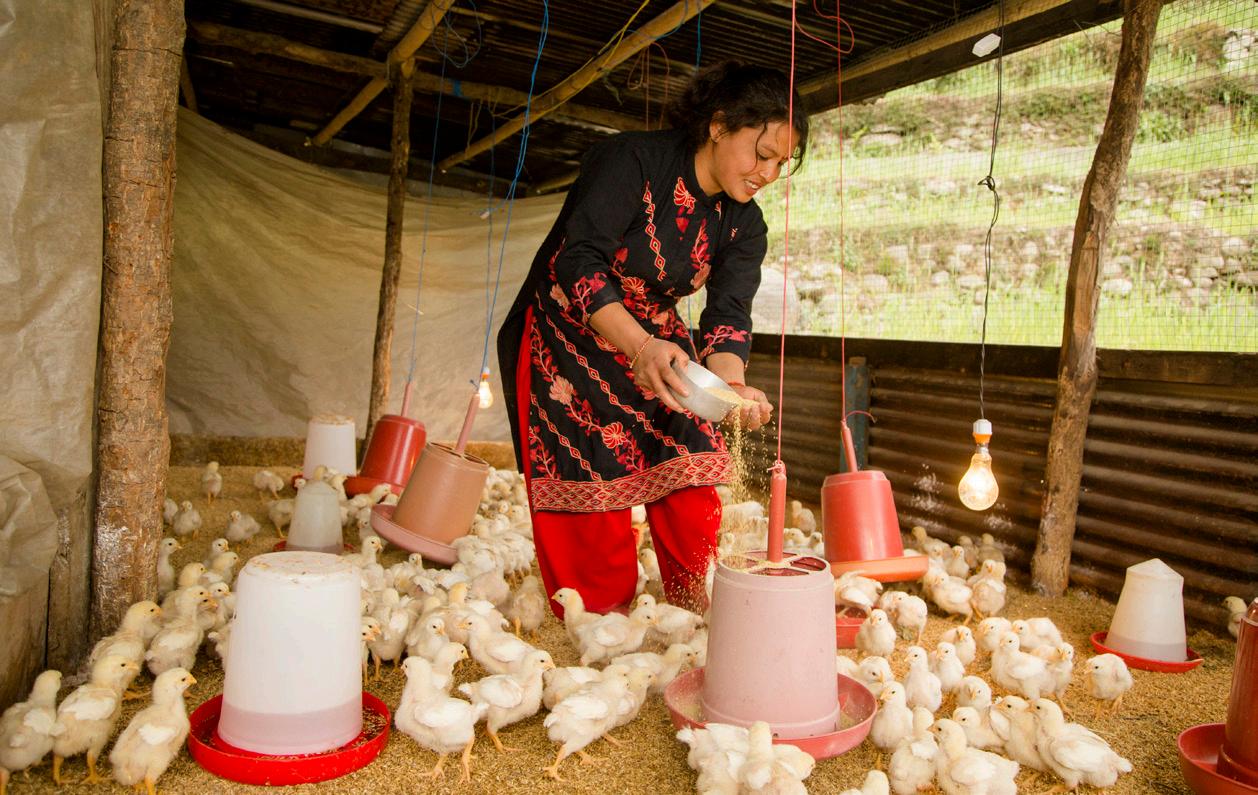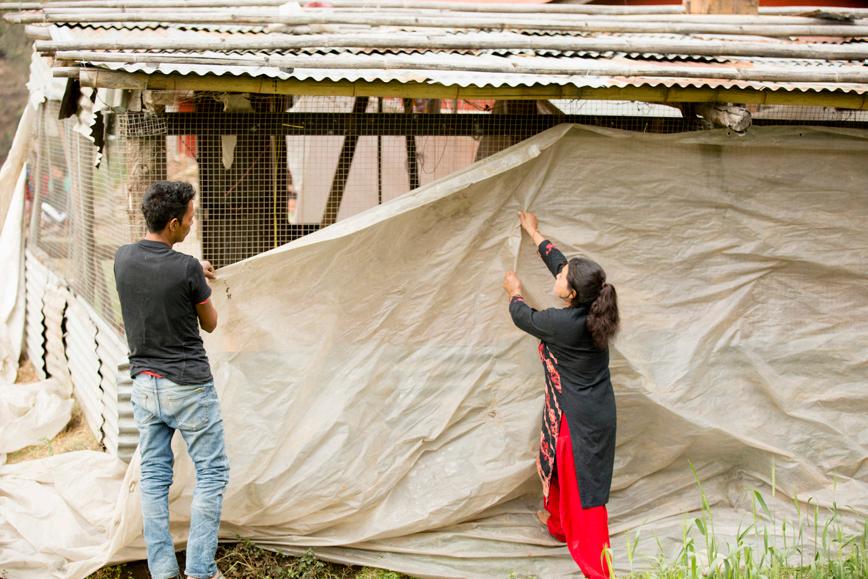
2 minute read
Child bride to a budding entrepreneur
Child bride to a budding entrepreneur - Anju’s story!

Anju (29 years, name changed) lives with her husband and two sons in rural Sindhupalchowk district. Her husband works as an agricultural labourer and was the sole income earner in the family for a while.
Having lost her father at the age of 3 and mother at the age of 15, Anju had to move in with her maternal uncle and aunt. She was not treated well there and was made to work tirelessly, struggling to get a decent meal. She shares, “I couldn’t do all the work assigned to me as it was very tiring. A year after my mother’s death, my uncle and aunt found a man and married me off. I used to feel as if I was a burden

on the people around me. At the age of 17 years, I had my first baby. I was a child myself, unable to cope with life on my own, and here I had a child of my own to take care of.”
After a few years, she had her second son. The financial instability at home, and lack of her own skills, made Anju very desperate. In 2019, following a risk assessment, Anju was identified by CLAMP staff and by the ward office as being at high risk of modern slavery. As part of CLAMP’s livelihood skills development initiative, she received training in poultry farming, based on local needs and her own interests.
“During the training, I learned the best practices for poultry farming. I also learned about the issues of modern slavery and how it trapped young people, especially women and girls. From my own experience, I also realise the dangers of child marriage and advise all girls not to get married early.”
After successfully completing her training, Anju received 62 chicks as part of the initiative. She took a loan of 50,000 Nepali Rupees (£370) from a CBO named Churikharka Mothers Group and built a shed for housing her chickens. She was able to earn 40,000 Nepali Rupees (£296) from selling them and then she added 400 chickens to her stock and was able to earn a further 30,000 Nepali Rupees (£220). Prices were affected due to the Covid-19 pandemic. She has been able to repay most of her loan already. To manage the waste, she has two pigs and is working on expanding her business further.
Anju’s husband has been supportive of her business and assists her whenever needed. Their overall financial situation has been steadily improving. Today, both their children attend school. Anju has plans to formally register her business and grow it further in the coming years.
“As I earned a decent amount from poultry farming at the beginning of the business and it has proven successful, I am now approached by neighbours, and by even my husband, regarding ideal farming techniques and suggestions for improving their work. I feel very proud of myself.”











